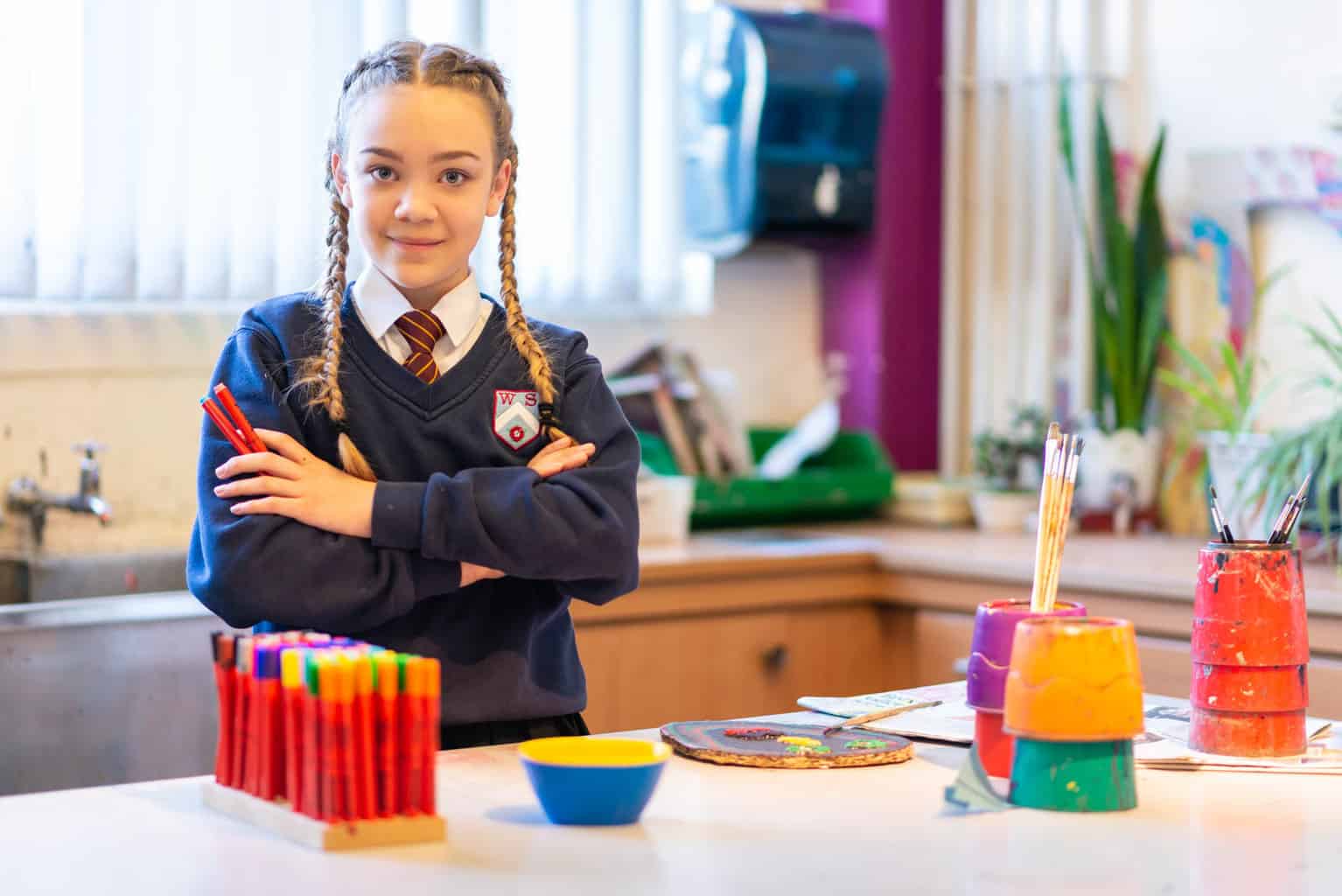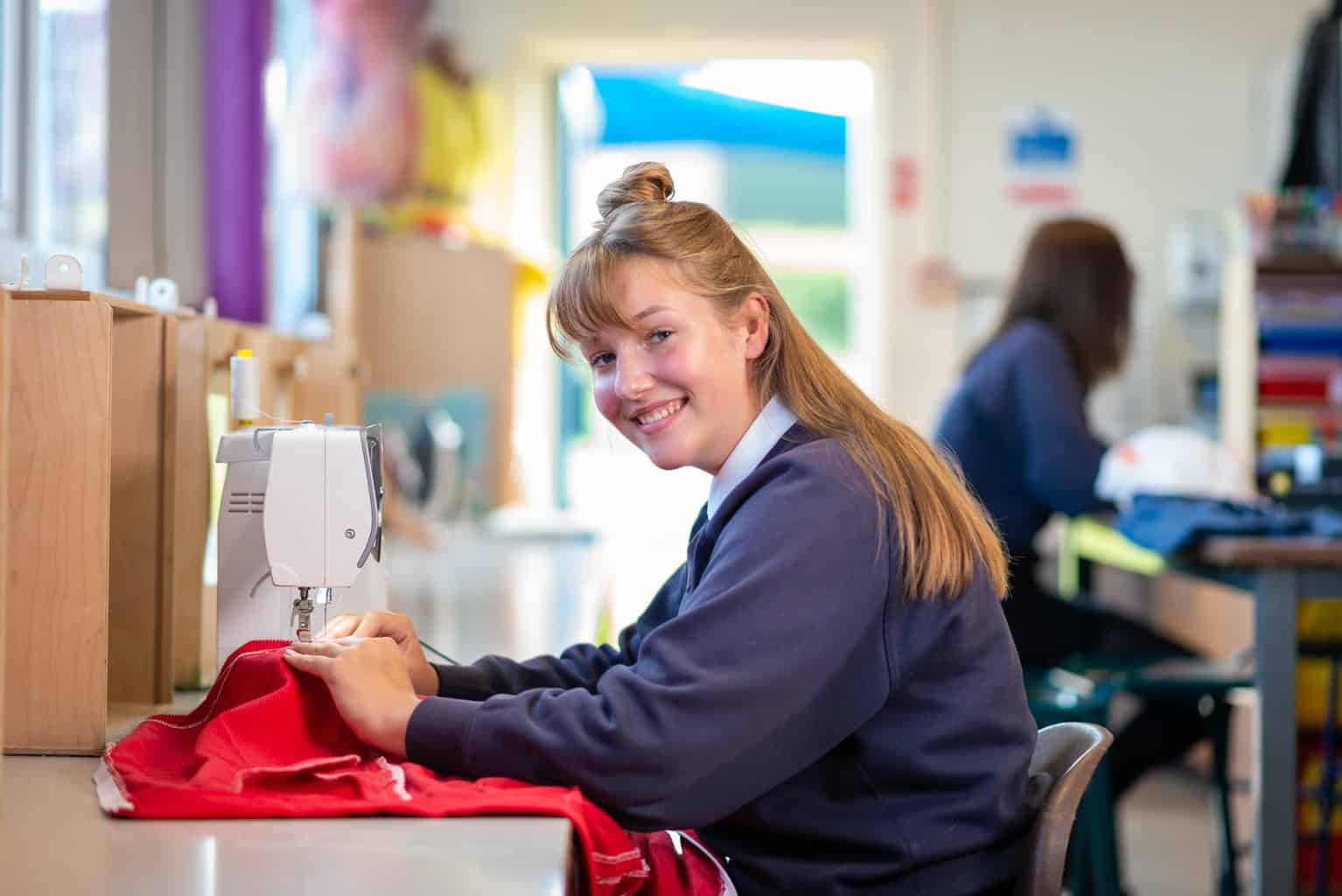Upcoming School Events
Remembering Mark Wade- Crazy Tie Day
Remembering Mark Wade- Crazy Tie Day
School Prospectus
Latest News
Art & Design Technology

Art, Design and Technology
We believe that creativity and exploration is key, so students can develop their independence and have the opportunity to try without the fear of failing and take further risks. The curriculum builds a firm foundation as they progress through the curriculum and beyond.
Motor skills are developed from the beginning of Year 7 with the opportunity to apply these throughout KS3 and become more independent learners while using a wide range of equipment and skills.
Please click on the boxes below for subject specific information for each year group:
Year 7 Art
Tracking skills across the curriculum starts with a foundation in year 7 where student learn about the following
Term 1:
- Formal elements of art
- Critical and cultural understanding
- Processes and ways of working
Term 2:
- Colour Theory
- Composition and placement
- Limitations, trial, and error
Term 3:
- Experimenting
- Evaluating
- Creating a final response
Students will then, in the last few lessons of the school year, learn the process of making a shoe, including a last and the structure of the shoe. Students will then finish the year with a completed shoe that has been painted and decorated.
Year 8 Art
Students will build on what they have learnt in year 7 and look how they can be experimental through the theme of Surrealism
Term 1:
- An introduction to Serialism and what a movement in art is
- Critically engage with artists that used the theme of mythical creatures
- Designing and creating
Term 2:
- Experimental collage
- Formal writing
- Combining and developing
Term 3:
- Narrative in art and how artists show this
- Context and cultural interpretation
- Creating a final response
possible.
- plan more interesting compositions and layouts in their future working, including overlapping and using strong lines that lead to a focal point.
Year 9 Art
This year is preparing students for GCSE, the work will allow them to formalise skills they have learnt throughout KS3.
Term 1:
- Introduction to Caricature
- Formal portrait skills
- Development and analysis
Term 2:
- Experimental portraits
- Formal drawing skills
- Refinement
Term 3:
- Artist exploration
- Development
- Final Outcome
- Display
Key Stage 4 Art
Design Technology
Design and Technology is studied on a rotation at KS3, so all students have the opportunity to study and develop skills across all of the material areas. All students will experience theory and practical elements of food and nutrition, product design and textiles. This allows students the chance to identify, select, solve and evaluate problems. They can be creative while considering real life problems; learning a range of practical skills which support numeracy, literacy, and science as well as skills required for everyday life.
Year 7 DT
Students investigate the design process. They learn a range of skills which will continue to develop throughout KS3.
These include:
- Designing
- Material identification
- Introduction of CAD/CAM
- Health, hygiene, and safety
- Balanced, healthy diets
- Speed and control on the sewing machine
- Hand and machine skills (in all areas of Design and Technology)
- Finishing of materials
- Evaluating
- Introduction to production plans and production lines
- Sensory analysis
- Seasonality
Year 8 DT
Year 8
Students explore the needs of specific users, developing on techniques and skills learnt in Year 7, while introducing further thinking and independent opportunities.
These include:
- Designing and manufacturing
- Modelling and developing ideas
- Environmental issues
- Scale
- CAD/CAM
- Analysing existing products
- Commercial viability
- Key food commodities
- Nutrients
- Packaging and labelling
Year 9 DT
Students continue to develop their knowledge across the three rotations of Design Technology, to ensure that they are confident to design and apply principles to make high-quality prototypes and meals for a wide range of users.
These include:
- Designing and manufacturing
- Experimentation and testing of ingredients and materials
- Modelling, paper pattern cutting
- Selecting suitable materials and ingredients
- Customisation
- Constructing/producing high quality products
- Social, environmental, and moral issues
- Independent exploration of materials, ingredients, and recipes
- Macro and micronutrients
- Food investigation
- Special diets
- Constructing/producing high quality products
- Social, environmental and moral issues
- Independent exploration of materials, ingredients and recipes
Key Stage 4 Design and Technology

